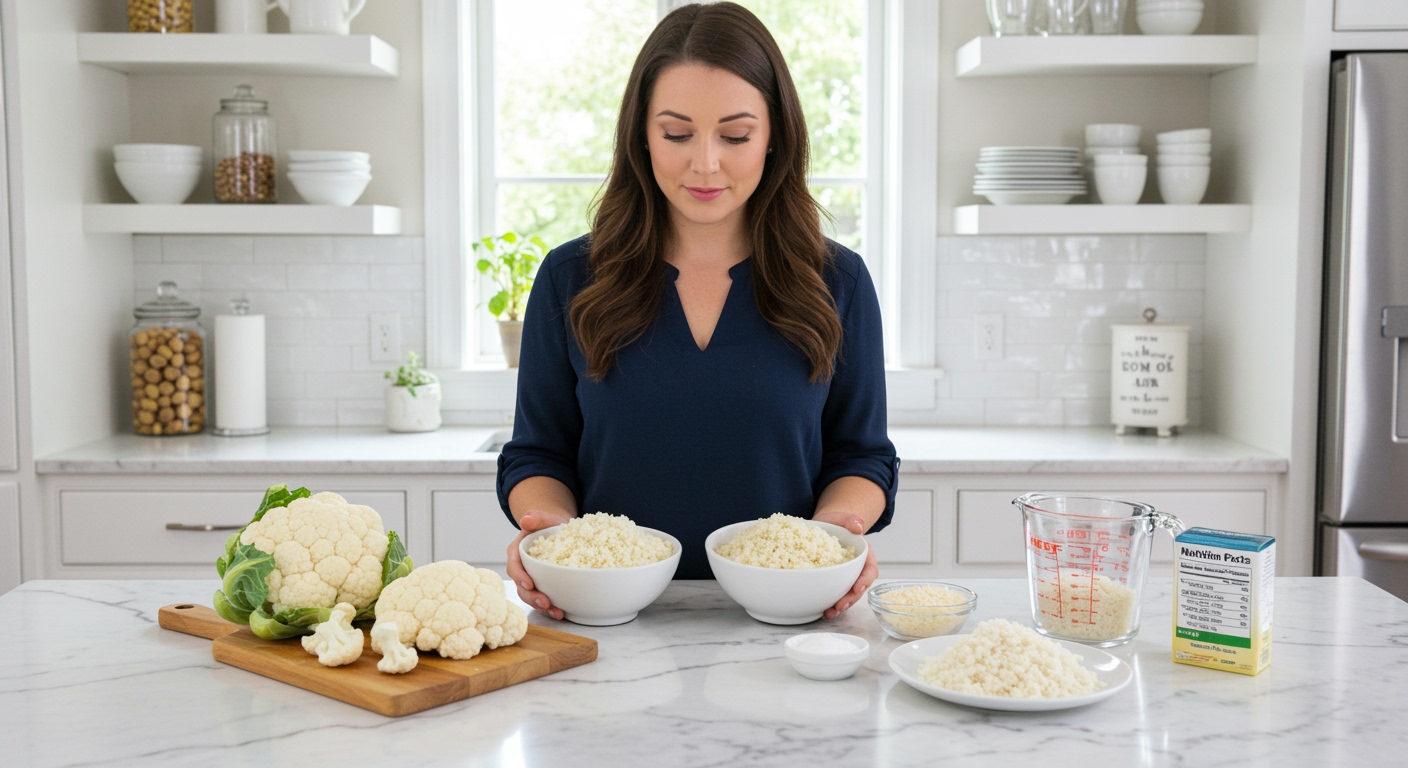✪ Key Takeaway: PCOS causes persistent belly fat through insulin resistance and elevated androgens that promote abdominal fat storage.
Introduction
You eat healthy foods and exercise regularly, but your belly fat refuses to budge.
Many women with PCOS face this frustrating reality because their bodies store fat differently than women without this condition.
Hi, I am Abdur, your nutrition coach and today I am going to explain exactly how PCOS creates stubborn belly fat and what you can do about it.
How Does PCOS Change Fat Storage Patterns?
PCOS fundamentally alters where your body stores fat through hormonal disruption.
Normal fat distribution spreads evenly across your hips, thighs, and midsection.
PCOS shifts this pattern toward central obesity, concentrating fat around your waist and internal organs.
This happens because elevated androgens like testosterone promote abdominal fat accumulation.
Your body essentially adopts a more masculine fat distribution pattern, storing energy in your midsection rather than your lower body.
Research shows that 80% of women with PCOS develop this apple-shaped body composition compared to just 30% of women without PCOS.
✪ Fact: PCOS belly fat contains more inflammatory cells than regular subcutaneous fat tissue.
Why Does Insulin Resistance Make Belly Fat Worse?
Insulin resistance affects up to 85% of women with PCOS and directly promotes belly fat storage.
When your cells resist insulin, your pancreas produces more of this fat storage hormone.
High insulin levels signal your body to store calories as fat, particularly in your abdominal region.
This creates a vicious cycle where belly fat produces more inflammatory compounds that worsen insulin resistance.
Your body becomes trapped in a state where it constantly stores fat while struggling to burn existing reserves.
Studies demonstrate that women with PCOS have 40% higher insulin levels than healthy women, even when body weight remains identical.
✪ Pro Tip: Measuring your waist-to-hip ratio helps track progress better than total body weight for PCOS management.
What Role Do Stress Hormones Play?
PCOS creates chronic stress in your body that elevates cortisol production.
Cortisol is your primary stress hormone that promotes fat storage when levels remain consistently high.
This hormone specifically targets your abdominal area for fat deposition as an evolutionary survival mechanism.
The combination of high cortisol and insulin resistance creates the perfect storm for persistent belly fat.
Your body interprets the hormonal chaos of PCOS as a threat requiring energy storage for survival.
Research indicates that women with PCOS have 25% higher cortisol levels throughout the day compared to healthy controls.
✪ Note: Sleep deprivation worsens cortisol imbalances and makes PCOS belly fat even more stubborn.
Can You Actually Lose PCOS Belly Fat?
Yes, you can lose PCOS belly fat, but it requires a targeted approach that addresses the underlying hormonal issues.
Traditional calorie restriction often fails because it does not address insulin resistance or androgen excess.
Successful PCOS belly fat reduction focuses on improving insulin sensitivity through strategic nutrition and exercise.
Low-glycemic eating patterns help control insulin spikes that promote abdominal fat storage.
Resistance training builds muscle tissue that improves glucose metabolism and reduces insulin resistance.
Studies show that women with PCOS can reduce belly fat by 15-20% within six months using hormone-balancing nutrition strategies.
The key lies in patience and consistency because PCOS belly fat responds more slowly than regular weight loss.
✪ Pro Tip: Focus on reducing inflammation through omega-3 fatty acids and antioxidant-rich foods to accelerate belly fat loss.
The Bottom Line
PCOS creates persistent belly fat through a complex web of hormonal imbalances that make traditional weight loss methods less effective.
Your body is not broken, it just follows different rules that require different strategies.
I would love to hear about your experiences with PCOS belly fat or answer any questions you might have in the comments below.
References
At NutritionCrown, we use quality and credible sources to ensure our content is accurate and trustworthy. Below are the sources referenced in writing this article:
- Frontiers in Endocrinology: Metabolic Dysfunction in PCOS
- Nature International Journal of Obesity: Body Fat Distribution in PCOS
- PMC Research: PCOS and Abdominal Obesity
- PMC Endocrine Research: Insulin Resistance in PCOS





